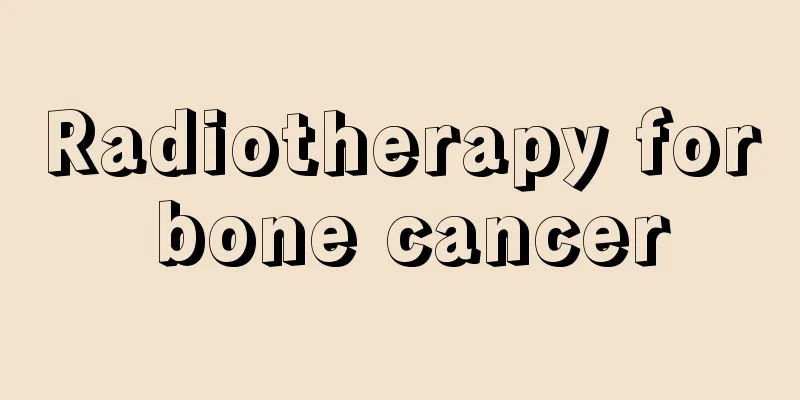Causes of rectal cancer

|
Rectal cancer is a malignant tumor that occurs from the junction of the sigmoid colon and rectum to the dentate line. It is one of the ten most common malignant tumors in my country, second only to gastric cancer in digestive tract tumors. 60.75% of colorectal cancers occur in the rectum, and 80% of rectal cancers can be palpated by digital examination. The cause of rectal cancer is still unclear, and it is mainly related to the following reasons: ① Chronic inflammatory ulcerative proctitis: due to long-term chronic inflammatory stimulation, repeated repair of ulcers, atypical hyperplasia and canceration. Domestic data show that the 20-year malignant rate of ulcerative proctitis that cannot be clinically controlled is 50%. Schistosoma proctitis: due to the deposition of schistosome eggs on the rectal mucosa, it may cause lesions, which has been confirmed by domestic scholars. ② The currently recognized precancerous lesions of rectal adenoma are familial adenomatosis and villous adenoma. Domestic literature reports that familial polyposis will turn into cancer after 10-15 years if not effectively treated. ③ Hereditary factors Recent research data have found that rectal cancer is highly hereditary. The chances of developing the disease in close relatives and close relatives with a family history of rectal cancer are significantly increased. Hereditary rectal cancer accounts for 14%. The transmission of gene changes can be manifested in the familial nature of tumors. It is mainly manifested as autosomal dominant inheritance. Rectal cancer occurs in several consecutive generations (vertical inheritance), and the genetic risk of men and women is equal. The age of onset is early, and the susceptibility of tumors in related organs of patients and their children is increased. Multiple primary cancers are common. ④ Dietary habits: Long-term consumption of a high-fat, low-fiber diet can increase the amount of 3-methylcholanthrene in the feces. This substance is a carcinogen. The reduction in fiber food intake can easily lead to constipation, which prolongs the contact time between high-concentration 3-methylcholanthrene and the colorectal mucosa, increasing the carcinogenic effect. ⑤Other factors. |
<<: Signs of pancreatic cancer
>>: Effect of total cystectomy on sexual function in patients with bladder cancer
Recommend
Can shrimp be eaten with broccoli
Shrimp meat has always been a favorite ingredient...
What are the effects of a new house on the fetus
Nowadays, interior decoration is also a cause of ...
Cervical cancer may be confined to the cervix in the early stages
In the early stages, cervical cancer may be confi...
What harm does wallpaper do to the human body
Nowadays, when many people buy a house and decora...
What is the reason for the pain below the knee
Many people experience pain in their feet and bel...
Can we eat pig neck bones?
Many people do not know whether pig neck bones ar...
How are ears formed?
It is normal for the human body to have two ears,...
Is nasopharyngeal cancer saliva contagious?
Is nasopharyngeal cancer saliva contagious? The s...
What diseases should be differentiated from skin cancer
The symptoms of many diseases are very similar to...
The hypothalamus includes
The hypothalamus is the most important component ...
How long does it take to soak lobsters in salt water?
When cleaning aquatic products, everyone must be ...
How to treat lung cancer most effectively? Five major misunderstandings to avoid in the diagnosis and treatment of lung cancer
Speaking of lung cancer, many friends feel that t...
Cost of follow-up examination after skin cancer surgery
Choosing a skin cancer hospital is extremely pain...
Sleeping eye mask
Sleeping eye masks are very common in our lives a...
What are the ways to prevent prostate cancer? Five measures to help you prevent prostate cancer
Prostate cancer is becoming a common disease, and...









